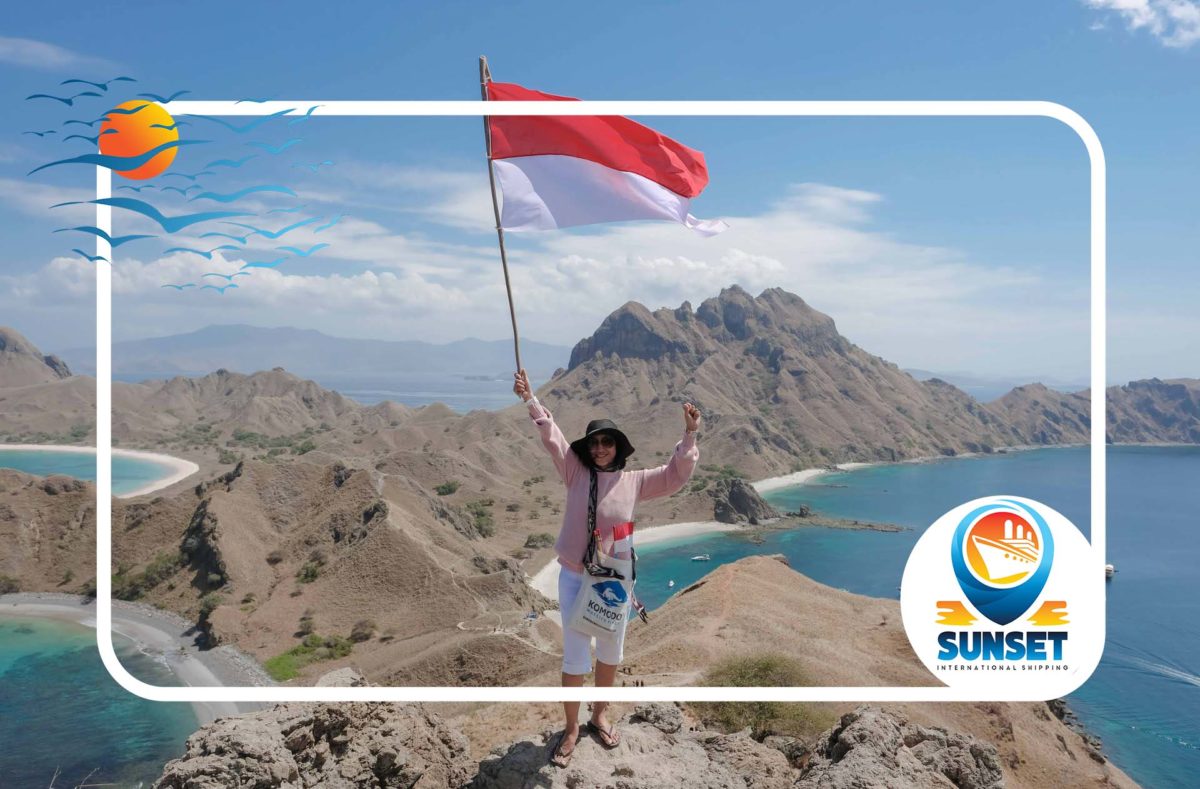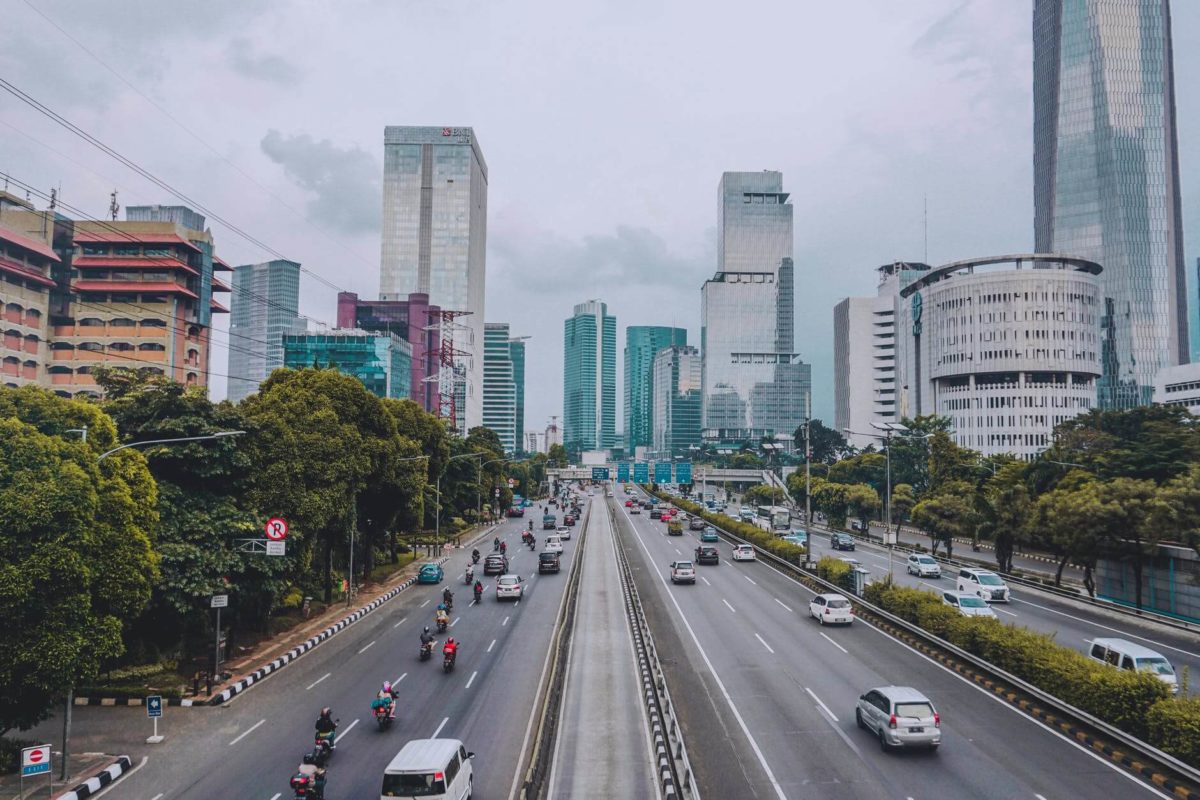Moving overseas doesn’t get any better if you plan on moving to Indonesia. While it may seem like an unconventional choice among countries, its booming economy and hard-earned status of an international diplomatic force show that it’s becoming more and more appealing for expats. Check out some facts on relocating to The Emerald of Equator.


Can Foreigners Live in Indonesia?
What you may momentarily experience upon landing on the Indonesian islands is culture shock; the capital – Jakarta – is a metropolis in every sense of the word, but its residents are mainly Indonesians who grew up there. They have specific etiquette and cultural understanding that differs from Western ideals and ways of life. Foreigners can live among native Indonesians as long as they respect the culture and acknowledge they’re guests in their land, despite having citizenship.
The first thing you probably thought was, “Is Indonesia a good place to live?” and with the very affordable gas, food, and rent prices, we can say that it is. Not only is it affordable and convenient, but the local people are amicable and have an easygoing approach to life. You’ll find yourself living at a completely different pace and experiencing all the benefits of relocation, even in the busiest city like Jakarta.
Some things you should know if you plan to move to another country that doesn’t have English as the official language – be mindful of the rules for traveling abroad during covid-19, and start learning a new language before you move out (or at least know some basic phrases that’ll get you through daily life.)
Things to Know Before Moving to Indonesia
Besides the fun and informative facts, there are rules about how to behave and speak to people in public; many Southeast Asian countries have etiquette rules, and if you want to fit in and have an easy time there, you should be careful about the following:
- Don’t raise your voice in public, since it’s considered embarrassing and as causing embarrassment to others,
- Don’t get impatient or angry because they don’t open their shops on time or respond to commands immediately; this is their way of life, so leave the impatience aside,
- As one of the friendliest countries in the world, they tend to be very polite and want to be sure you are, too; you should use the question word “Boleh?” (“May I?“) when entering a small street or asking local people for a favor,
- Never use your left hand for anything, even if you’re left-handed. The locals consider this hand as the one to use when wiping in the bathroom; it may sound ridiculous, but it’s the etiquette,
- As well as never using your left hand, never point with your right index finger; always do it with your right thumb,
- Bow slightly when meeting new people or greeting friends,
- Always remove your footwear indoors, and never show the soles of your feet to others.


Required Expat Documentation and Health Insurance Types For Moving to Indonesia
Whenever you decide where to live abroad, there’s a list of necessary documents for traveling. Most people relocate for work, so prepare for a process if you wish to do the same. The truth is – it’s challenging to get a visa on your own there. You wouldn’t be able to apply for a work permit yourself; your employer would have to do it for you, and the employing company must be native.
The procedure continues as the company that wishes to hire you provides proof they require a foreign employee. If they get approval, they’ll submit your application for the work permit called IMTA and then apply you for a limited stay visa (VITAS.) The procedure first goes through the Ministry of Manpower, with its employees, then send a letter of recommendation in the business’s name for you to the General Directorate of Immigration in the capital.
Moving to Indonesia Requirements – What to Do When You Arrive
Once you’re settled in your new home, you’ll have seven days to report to the regional immigration office with your passport and an embarkation card. Then, you’ll get fingerprinted and exchange your visa for a limited stay permit card (KITAS.) This card is valid for one year, and it can be renewed for up to five years, after which you’ll be free to apply for a permanent stay permit (KITAP) if you wish to do so. If you come with family, they too will have to go through this procedure upon arrival.
Healthcare Equipment Matters For a US Citizen Moving to Indonesia
When you research how to live in another country, you must consider health and get adequately insured. Emergencies happen all the time, so it’s crucial to get health coverage when you decide to move abroad. The Indonesian healthcare system is called JKN, and it was introduced in 2014. It entails mandatory universal health insurance for all residents – currently, 82% of the population is covered by the universal care system.
In addition to the JKN, Indonesians who can afford it pay for private health insurance. As an expat, before gaining your IMTA or the KITAP permit, we recommend you pay for private medical coverage, too. While JKN sounds like a great innovation, for now, it’s still on shaky legs due to its slow implementation. Nevertheless, it’s better to be safe than sorry and not worry about the cost of something so important as health insurance.
Indonesia Is a Nation of Many Islands, and Its Capital Is Jakarta
When you decide on living overseas, you have to understand the stakes of international moving. This island nation is very different from the place you’re used to, and you’ll have to work on learning that as soon as you settle in. As we mentioned, culture shock is bound to happen, but you can make it easier by doing the research before leaving.
Facts about the Southeast Asian Powerhouse of a Nation
We can tell you that this island nation is home to 270 million residents of various cultures; the nation’s cultural background is like a coloring book, full of impressive ethnicities, dialects, and languages. Java is the largest island, but you’ve also probably heard of Bali, Sumatra, Kalimantan, and Papua.
The climate is divided into wet and dry seasons, and the weather doesn’t have extreme ups or downs. The wet season lasts between November and April, while the dry season occurs between May and October. Volcano eruptions and earthquakes are a common occurrence – but the local folk still live comfortably. It’s just something to get used to over time when you’re moving internationally.
Some other facts about this island nation are:
- The Emerald of Equator is made up of 17,504 islands,
- It has the 2nd longest coastline in the world (second to Canada,)
- There are 1300 ethnic groups on Indonesia’s territory (Javanese being the largest) and over 700 languages and dialects,
- The official language is Bahasa Indonesia,
- There are over 100 endangered animals species in the country’s territory – rare and exotic species such as the Sumatran Tiger, the Komodo Dragon, Orangutans (whose name comes from the Malay language, and it means ‘forest person,’) and the smallest buffalo in the world – the anoa, among many other animals,
- There are 34 official provinces in the country, with independent legislature in every one of them,
- It’s home to one of the oldest human fossils called “Java Man,” discovered in 1891 and 1892,
- It has nine UNESCO World Heritage sites, among which is the Borobudur Temple Compound, the world’s largest Buddhist temple,
- 86% of the population is Muslim, while only 10% is Christian, 1% is Hindu, and 0.7% is Buddhist.
Jakarta Is a Vibrant Melting Pot of Cultures
It’s pretty easy to settle in Indonesia’s capital if you’re relocating abroad alone. Being a solo traveler can be demanding, but Jakarta will surprise you with the possibilities and hospitality. The capital is nestled on the northwest coast of the country’s largest island, Java. It’s considered the national center of economy, culture, and politics and has a population of 10,5 million. With this many residents, the metropolis has earned the nickname “The Big Durian” as a nod to New York’s nickname – “The Big Apple.”
Despite being nicknamed after the region’s signature smelly fruit, durian, the Indonesian capital isn’t dirty nor heavily polluted and has a well-organized public transport system. It’s a global powerhouse since it’s vital for international diplomacy; this makes it welcoming to people of all backgrounds, despite the locals potentially giving you stares once in a while – this is typical in areas where there aren’t many tourists in general. It’s not meant to be offensive.
Jakarta is home to over 170 shopping malls, all of which are multi-level, modern, and highly prominent centers to spend your free time in. Besides the classic entertainment of malls, you can visit one of the city’s 142 museums or even hang out near the city’s symbol landmark, a 433-foot tall obelisk called The National Monument or Monas. This obelisk was built as a commemoration of the struggle for Indonesian independence.
An expat shared his experience of relocating across the world and living in Jakarta. He talks about his great impressions of traffic and public transport and how to break the language barrier when the residents are friendly. Watch all this in the video below.
Can You Move to Indonesia With Your Youngest Family Members?
If you plan on relocating with kids, they’ll have to go to school there. Adjusting to a new country after a long process of moving abroad isn’t easy for anyone, especially children who aren’t yet used to change. However, kids are fast to adapt and learn; while attending an English-speaking school, they’ll soon learn the native language, despite being expats.
The School System – Primary and Secondary Schools Are Mandatory
Indonesia’s law says that residents must attend primary and secondary school, which is around 12 years. High school is generally free, besides a small fee that has to be paid upon admission. They also have a system of international schools, where classes are held in English and are generally meant for expat communities. So, before leaving, take your checklist for relocating abroad and add the mandatory point of looking for the next educational institution for your kid.


How Much Do You Need to Live Comfortably in Indonesia?
The official Indonesian currency is Rupiah. One US Dollar is equivalent to around fourteen thousand Rupiah; this number can seem wildly different, but you’ll get used to it as you continue residing there. If you’re relocating to another country for love, your significant other will be happy with any savings you bring, and you can treat them to a fancy three-course dinner that you’ll only pay around $20. Along with the plane ticket expenses, you’ll have the cost of overseas shipping, so it’s essential to plan out a budget that’ll help you survive for at least a month.
The Cost of Living In the Indonesian Capital
If you consider any reasons to move, the cost of living should be one of them. Los Angeles is one of Jakarta’s sister cities, so we’ll compare the cost of living between them. Renting a three-bedroom apartment in Los Angeles’s outskirts is around $3,000 and $4,500 in the central area. Compared to that, rent in Jakarta’s outskirts for the same type of property is $700, and $1,200 in the center, which would mean that Indonesia’s booming capital is around five times cheaper than a place like LA.
An overseas moving company will ship your stuff across the globe and beyond many countries, and you’ll still have money for rent and essential expenses for the first few weeks after relocating for the first time.


Your Move to the Emerald of Equator Can Be Supported by An International Moving Company
To make the move work and for everything to go smoothly, you can look for an overseas shipping company and let their relocation services fulfill the needs of your move. Movers can help you pack your stuff, and after that, put it away in storage while you deal with the paperwork necessary for obtaining a visa; you’ll only worry about when and how to tip the movers. After all, it’s not easy becoming an expat and trying to get used to a place where English is barely spoken.
Relocation stress can make you feel overwhelmed when you become aware of the facts, especially if it’s a last-minute move, but with shipping overseas services that movers provide, you’ll get the chance to ship your car overseas and have that part of life still stay familiar to you. Driving in foreign countries may seem scary, but you’ll feel good when you take a drive around the area and make friends with local folk in the parts of town that you like.


The Emerald of Equator Is Waiting For Your Arrival
Moving from the USA to Indonesia is a big feat – from obtaining a work permit and a visa to getting used to the humid summers and laidback lifestyle of the natives. There can be a lot to learn there, starting with the notion of taking life out of fifth gear and instead choosing to cruise around a place where everyone wants to help, and the food is delicious. You’ll have no problem keeping in touch with friends as well as making new ones.







